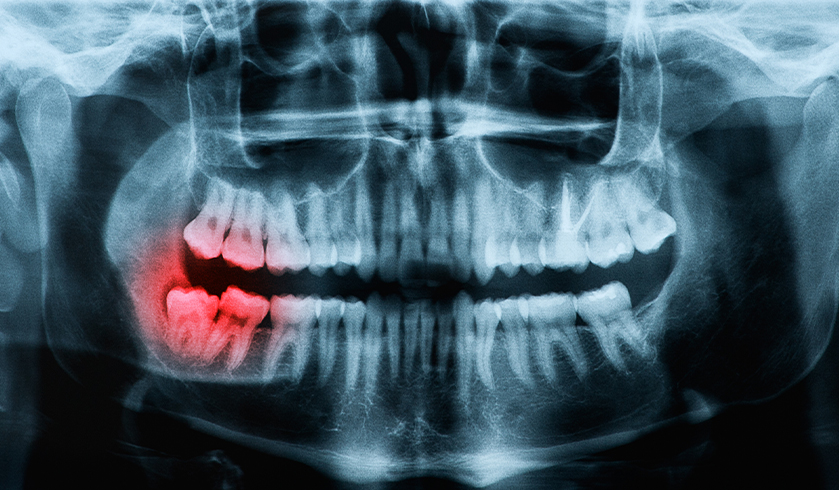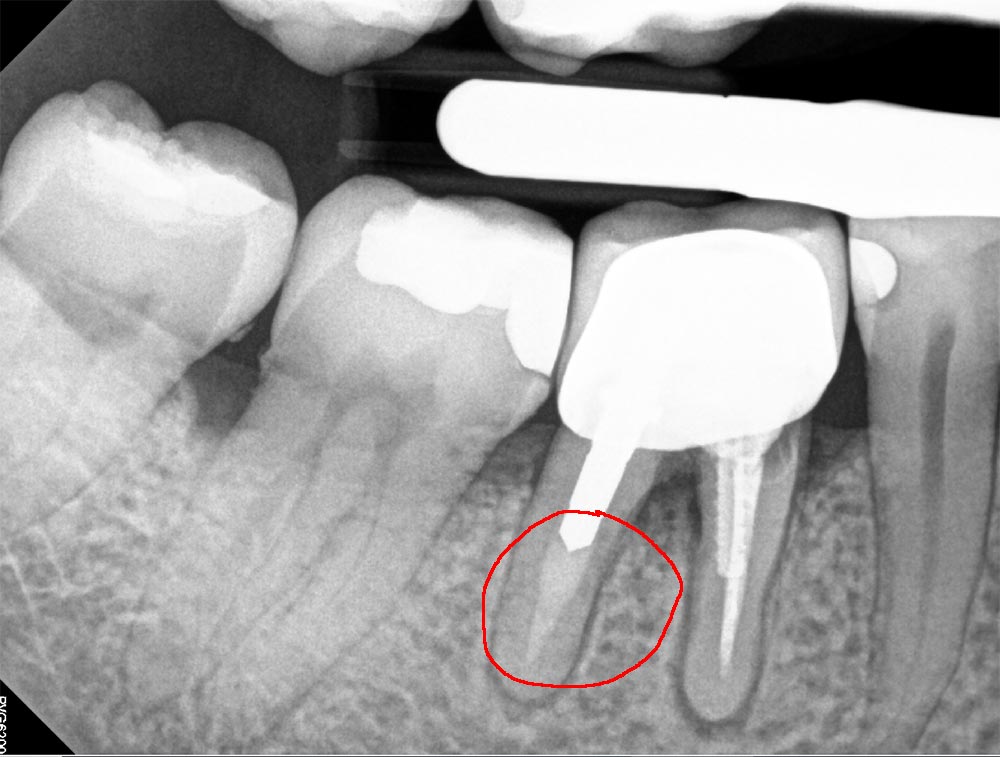Root canal treatment is a dentistry procedure used by endodontists and emergency dentists to remove the infection from inner dental pulp that is causing tooth damage and pain. If left untreated tooth and/or gum infection becomes a dental emergency where urgent care is needed to alleviate painful symptoms, eliminate infection, and prevent the spread of further infection through the root canals.
Our dentists and specialists have gained experience and received training in providing emergency treatments and fast pain relief. Same-day appointments are available for new and existing patients in our four centrally located London clinics.
BOOK ONLINE
What causes a root canal infection?
Tooth infection may set in for a range of reasons, such as tooth decay and gum disease. However, a contributory factor is the wear of the outer enamel and dentin layers. Enamel wear occurs from incorrect teeth brushing techniques, poor oral hygiene, plaque and bacteria build-up, an improper diet with foods high in acid and sugar, teeth grinding and oral injury.
The infections may present as an oral abscess that radiates pain throughout the jaw and face. Having emergency dental care to drain the abscess and remove all infection enables healthy gum tissue recovery without painful symptoms.
How to prevent the need for a root canal treatment?
Early intervention and the treatment of tooth decay, gum inflammation, infection and disease help individuals receive the dental care they need for healthy teeth and gums. Having teeth professionally cleaned, scaled and polished removes plaque and tartar build-up in challenging to reach places not accessible through home teeth cleaning.
Dentists provide fillings and teeth restorations as needed to fill cavities and restore damaged teeth to prevent infection. Leaving damaged teeth and cavities untreated raises one’s vulnerability to tooth infection, which may require emergency root canal treatment to remove the infected dental pulp. In some cases, gum disease can set in causing tooth loss.
BOOK A DENTAL CHECK-UP
How to understand if you need a root canal treatment?
If infected, your teeth may initially feel sensitive, particularly with changes in temperature. The tooth enamel erodes or wear, and the gum tissue becomes irritated and inflamed. If not treated the trauma accumulates and becomes a risk to your oral and overall health.
As the condition worsens, throbbing toothache develops and does not go away even with the use of painkillers. The pain radiates from the teeth to the jaws and face. Pus gathers in the infected area forming an abscess and other symptoms, such as headaches and fever. If left untreated, these symptoms can escalate into a dental emergency and require immediate treatment.
What is the root canal treatment procedure?
The dentist will first discuss the steps of the treatment process, costs and aftercare. Patients are then provided with a local anaesthetic for pain-free root canal treatment after consenting to the procedure.
During the treatment, the dentist gently drills a hole through the enamel of the tooth to access the infected dental pulp. Using dental instruments, the infection is removed from the root canal. To ensure that the inflammation is eliminated more than one dental appointment may be required.
The dental pulp contains nerves and blood vessels for healthy tooth structure. Once infected tooth pulp is removed, it is replaced with gutta-percha to restore the inner form and function. Gutta-percha dental material seals the tooth into the jaw bone to prevent re-occurrence of infection. In some cases, a dental restoration such as a dental crown may be needed to cover the treated tooth.

Do you need to re-do a root canal treatment?
The best way to determine if your treatment has been successful is to have an X-ray taken. Where possible, it is best to have the X-ray done before the tooth is closed with composite. A successfully completed root canal treatment shows the canal filled with gutta-percha to the bottom of the root. This eliminates the possibility of an infection developing in the empty area of the root canal.
If you are concerned about a root canal treatment done in the past, or if you can sense foul odour coming from that tooth, contact our friendly receptionists. Our dentists will assess your case and recommend a re-do if needed.

If tooth infection severely damages the tooth and root, the tooth may need to be extracted to prevent the spread of infection through the root canals. The more the infection worsens the less chance there is of saving the tooth. Leaving a severely infected tooth poses risks for further tooth loss and general health problems.
The most favourable alternative is to take preventative measures, such as good oral hygiene practice, moderating acid and sugar intake, attending regular dental check-ups, having teeth professionally cleaned and receiving dental treatment where needed to prevent tooth infection, decay, gum disease and tooth loss.
Preventing tooth infection is far easier than treating severe tooth and gum infection that may have irreversible complications, such as tooth loss. Taking proper care of teeth and gums by maintaining oral hygiene and attending dental appointments to identify oral irritation early are the most favourable ways of preventing the need for root canal treatment.
Good oral hygiene regimes include proper brushing of teeth with fluoride toothpaste after meals and before sleep every day. Flossing teeth daily after meals is also recommended to remove excess food debris between teeth. Using a fluoride mouthwash to rinse gets rid of debris and refreshes the mouth.
Having teeth professionally scaled and polished removes excess plaque and tartar. Use of fluoride products keeps oral bacteria at bay.
Following a healthy balanced diet and avoiding high acidic and sugary foods helps to prevent erosion of tooth enamel that may expose dental pulp to infection. Not smoking keeps the teeth clean and free of tobacco stains. Tobacco chewing and smoking raises the risk of oral and lung cancer, discolours teeth and causes bad breath.
Moderating alcohol intake also ensures that liver function remains normal and reduces the threat of oral cancer. The nerves and blood supply in the dental pulp work to transport nutrients throughout the body, including the liver. A damaged liver from excess alcohol consumption may therefore also negatively impact tooth health. Alcohol is frequently stated in research as a contributing factor to developing cancers, such as mouth cancer.
We need our teeth for oral functions to receive essential nutrients and in communication. When these functions are impeded by oral infection our overall well-being suffers. Dental procedures such as root canal treatment serve to restore and enhance oral health.
